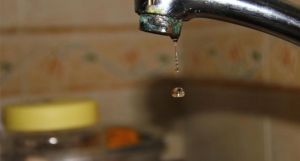Message from Trade Union International (Pensioners and Retirees) given below:
About three out of ten people worldwide, 2100 million people, lack access to potable water and water available at home. And six out of 10 4,400 million- lack safe sanitation. The conditions are worse in rural areas. Are the findings of the new report by the World Health Organization (WHO) and UNICEF , which also warns of water shortages in health centers and schools, increasing the risk of disease especially of children. As a result, 361,000 children under five die each year from diarrhea.
“Drinking water, sanitation and hygiene in the home should not be an exclusive privilege of those who are rich or live in urban centers , ” said the director general of WHO, Tedros Adhanom Ghebreyesus. “It is fundamental to human health services, and all countries have a responsibility to ensure that everyone can access them , ” complains. As reported by the agency, thousands of millions of people have gained access to basic water and sanitation since 2000, but these services do not necessarily provide clean water and safe sanitation.
Poor sanitation and contaminated water are also associated with the transmission of diseases such as cholera, dysentery, hepatitis A and typhoid fever. “Drinking water, effective sanitation and hygiene are critical to the health of every child and community, and therefore are essential to build stronger, healthier and more equitable societies. As we improve these services today in the most vulnerable communities and underprivileged children we are offering a fairer to enjoy a better tomorrow opportunity , “adds Anthony Lake, UNICEF Executive Director.
According to the report, 2,100 million people do not have water safely managed, 844 million lack even basic water service. This includes 263 million people who have to spend more than 30 minutes per trip to collect water from sources that are away from home, and 159 million who still drink untreated water from sources of water, such as streams or lakes. In 90 countries, progress towards basic sanitation is too slow, which means that its inhabitants will not reach universal coverage by 2030, continues the document.
Of the 4,400 million people do not have safe sanitation, 2.300 million still lack basic sanitation. This includes 600 million people who share a toilet or latrine with other households, and 892 million people, most in rural areas – that defecate in the open. Due to population growth, open defecation is increasing in sub – Saharan Africa and Oceania. According to the report, access to water and soap for washing hands varies greatly in the 70 countries with available data from 15% of the population in sub – Saharan Africa to 76% in West Asia and North Africa.

